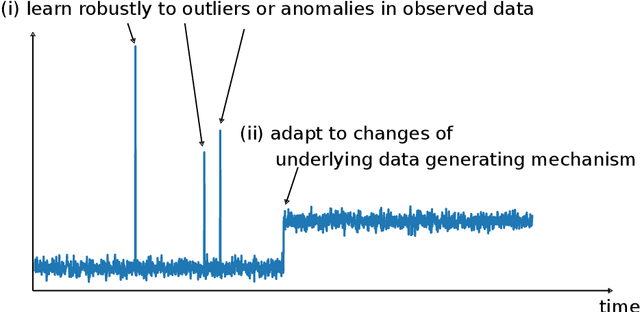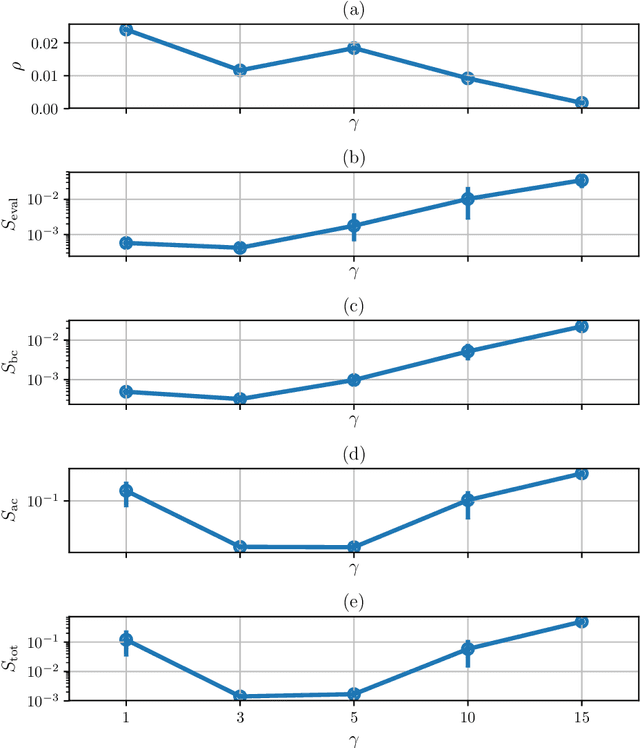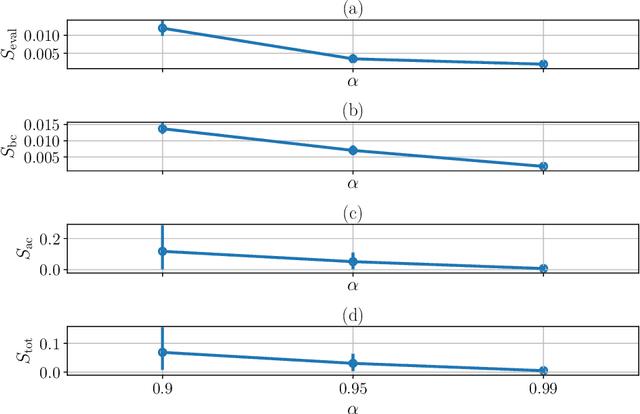Online Robust and Adaptive Learning from Data Streams
Paper and Code
Jul 23, 2020



In online learning from non-stationary data streams, it is both necessary to learn robustly to outliers and to adapt to changes of underlying data generating mechanism quickly. In this paper, we refer to the former nature of online learning algorithms as robustness and the latter as adaptivity. There is an obvious tradeoff between them. It is a fundamental issue to quantify and evaluate the tradeoff because it provides important information on the data generating mechanism. However, no previous work has considered the tradeoff quantitatively. We propose a novel algorithm called the Stochastic approximation-based Robustness-Adaptivity algorithm (SRA) to evaluate the tradeoff. The key idea of SRA is to update parameters of distribution or sufficient statistics with the biased stochastic approximation scheme, while dropping data points with large values of the stochastic update. We address the relation between two parameters, one of which is the step size of the stochastic approximation, and the other is the threshold parameter of the norm of the stochastic update. The former controls the adaptivity and the latter does the robustness. We give a theoretical analysis for the non-asymptotic convergence of SRA in the presence of outliers, which depends on both the step size and the threshold parameter. Since SRA is formulated on the majorization-minimization principle, it is a general algorithm including many algorithms, such as the online EM algorithm and stochastic gradient descent. Empirical experiments for both synthetic and real datasets demonstrated that SRA was superior to previous methods.
 Add to Chrome
Add to Chrome Add to Firefox
Add to Firefox Add to Edge
Add to Edge